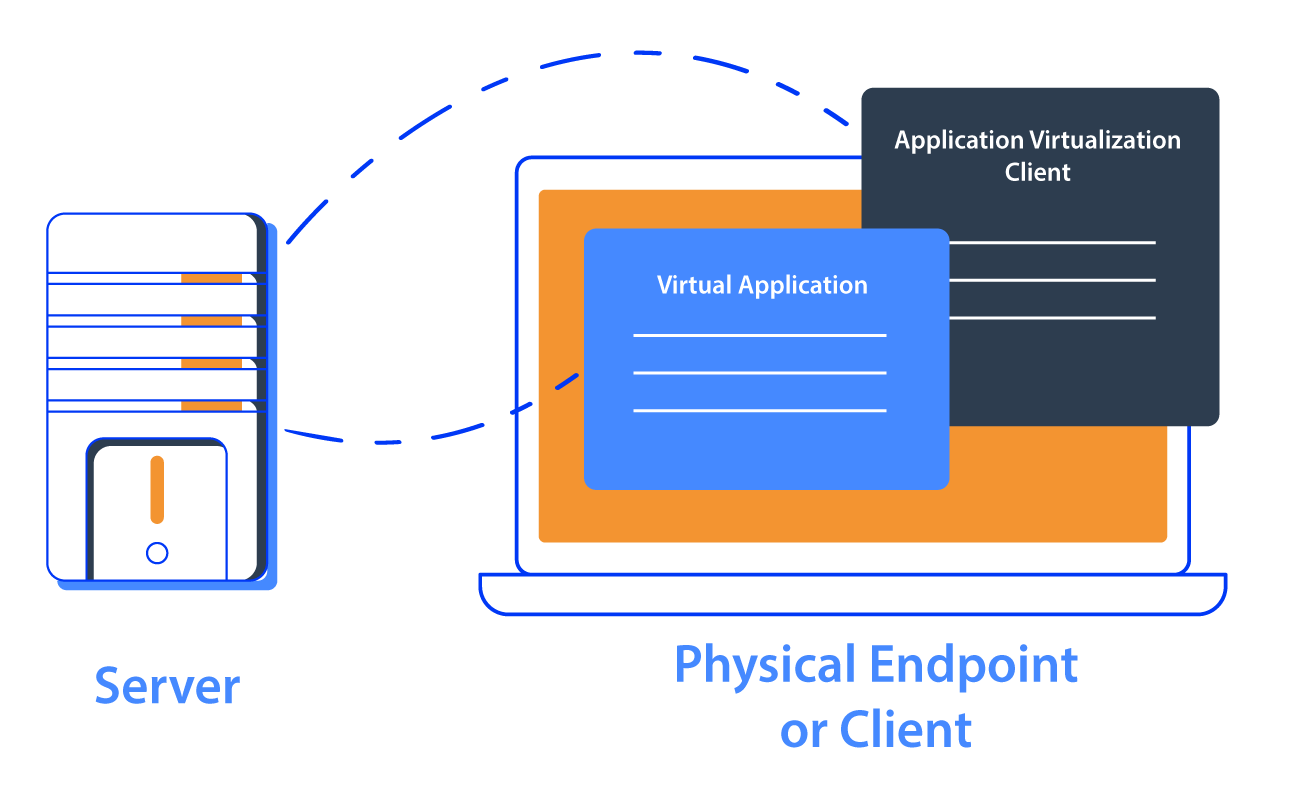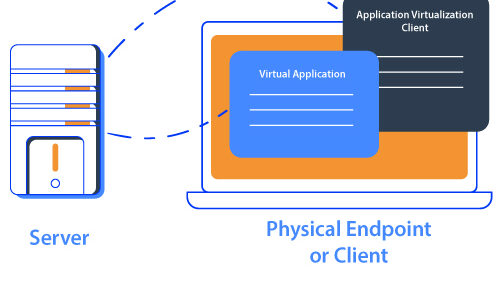Application Virtualization
Over the past several years, solutions for streaming applications have entered the marketplace, making a significant impact.
Historically, entire program applications were always installed on individual user systems, with the exception to scenarios similar to the use of Terminal Services. We know that only specific parts of computer programs need to be available at any time for the end user to perform particular functions. This means that programs do not require a complete installation on individual client computers, rather parts of it can be delivered over a low bandwidth network as needed.

What is Application Virtualization?
Application hosting is usually combined with application virtualization, meaning that applications are not installed in the traditional sense. Applications can be accessed by a user’s laptop, tablet, desktop, or smartphone, and can be available to the user even when the device is not connected to a network. This function allows for much greater compatibility, manageability, increased user productivity and portability of the applications themselves.
The benefits of Application Virtualization include:
- Reduced software licensing fees and maintenance
- Decreased IT Management Costs
- Decreased Client Hardware Costs
- Increased Application and Data Security
You might also like
- QuickBooks in the Cloud: The Sky’s the Limit
- Database Cloud Services in Orange County: Scale at Will
- Distinguishing Between Public, Hybrid, & Private Cloud Solutions
- Quickbooks Cloud Hosting: How to Lower your IT Budget
- How Secure Cloud Technology Mitigates DDoS Attacks
- Suggested Responses to Recent AWS Cloud Outages from Industry Experts
- Creating Cloud Solutions That Benefit Your Company and Streamline Your Work Process
- What is a Cloud Client?
- Private Cloud as a Service
- What is a Community Cloud?
- Private Cloud vs. Virtualization
- Infrastructure as a Services (Iaas)


